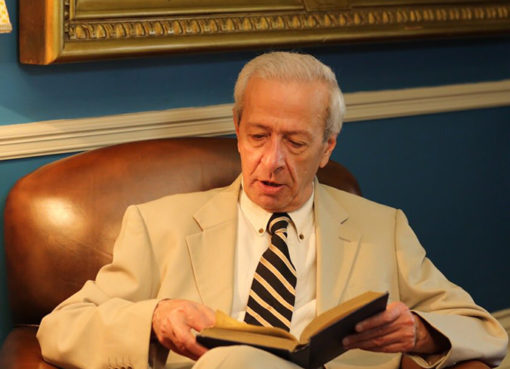Many minority groups and ethnicities have faced increasing levels of persecution in Ninawa province, the capital of which has been taken over by the Sunni Muslim extremist group, the Islamic State. But, locals complain, it is only the recent expulsion and persecution of Iraqi Christians that saw the world start paying attention. All sectors of Iraqi society are equally important, they say.
Earlier this month, on July 22, the United Nations Security Council denounced the persecution of Christians and other minority groups in northern Iraq. And many in Ninawa were happy about this. They felt it was an important development and a step towards more cooperation with, and attention from, the international community in terms of what has been happening in the province since Sunni Muslim extremists took control of large swathes of territory there, including the provincial capital of Mosul.
But there were still a few in Ninawa who felt that the announcement was too little, too late for the other minorities in the province, many of whom had been persecuted just as much as the local Christians.
“Christians were the first to be mentioned in the Security Council’s resolution because generally they are a peaceful minority and were in danger,” suggests Fares al-Bakouh, a local human rights activist and member of Iraq’s Accountability and Justice Commission, the body charged with vetting officials and politicians who were suspected of having current or past links with the Baath party. “The overriding concern for Christians also comes because of the powerful role played by the Vatican.”
“But there are many other minorities in Iraq who have also been persecuted – such as the Yazidis, Shabaks and Turkmen – and they should get just as much attention from the Security Council,” he argued.
After the United Nations Security Council, or UNSC, announcement, Iraq’s current Prime Minister Nouri al-Maliki said that his government also stood by the Christians.
This statement caused even more criticism. Many Iraqis said he was simply kowtowing to the UNSC and that he had not shown as much concern for other components of Iraqi society.
After Sunni Muslim extremists from the group now known as the Islamic State took over Mosul in early June, they did not kill any Christians, says local political activist Zuhair Jassim. “Two nuns were kidnapped but they were released fairly quickly. And at first the IS fighters didn’t even do anything to the churches. Although houses and property belonging to Christians was marked with an “N” [which stands for Nasrani, or Nazarene, how the Islamic State group describe Christians] the houses were not looted or destroyed.”
“In comparison, many Shabak were killed, their livestock was confiscated from their villages and it was distributed to the people of Mosul, as ‘spoils of war’,” Jassim continues. Instead of “N” these minorities had “R” written on their property. This means the houses belong to the “Rafida”, or those who reject. This is a term the Sunni Muslim extremists use to describe Shiite Muslims, whom they feel have rejected their version of Islam.
“Everything inside these houses was confiscated and the houses were given to members of the IS group so they could live there,” Jassim notes.
In fact, as writer Sadallah Muhsen points out Mosul’s Christians were actually the last minority to be driven out of the city. Although they’ve been targeted by extremist groups who have called Mosul home since 2003, and their rate of migration out of the city has increased, other minorities had already left.
Shiite Turkmen and Shiite and Sunni Shabak mostly live on the outskirts of the city after years of persecution, Muhsen notes. “Yazidis were targeted by an extremist campaign of ethnic cleansing in Mosul for years and there are none left in the city at all. Most of them have left and settled elsewhere some time ago.”
In 2010, gunmen set up checkpoints around Mosul and began killing or kidnapping those who passed through them according to their names. For example, Khadida is a name used only by Yazidis, Haval is Kurdish and George is a Christian moniker. In a city once known for its many colourful costumes and ethnicities, minorities no longer dared to wear their traditional clothing; everyone wore what the majority Arabs wore. At the time the governor of Ninawa, Atheel al-Nujaifi, called upon the international community to help.
Local journalist Amir Qassim believes the most recent announcement by the UNSC is about pressure brought to bear on it by aid organizations and non-governmental organizations. “Many of these organizations have Christian backgrounds so they sympathize with the Christians of Mosul,” he explains. “And they pressure their own often-Christian governments to do something within the United Nations. But they shouldn’t focus on one sector of Iraqi society at the expense of others.”
Qassim believes there are other reasons that diverse minorities don’t get as much attention as the province’s Christians. The local and federal authorities have often ignored these minorities, he says. And local aid organizations have also been unable to assist them, especially if the members of the minority groups remain inside Mosul.
“The civil society organizations that are still active are busy working with internally displaced people inside various camps,” he maintains. “It’s hard for them to help those inside Mosul, or to know what is going with them there.”
Five years after a story was published by NIQASH about the fact that minorities were fleeing Mosul, nothing much has changed. And there are similar arguments to what is being heard today: That the international community neglects other minorities in Iraq and focuses mainly on the country’s Christians.
The only major change is the most problematic one: The gangs that formerly appeared to undertake criminal activity or kidnap, kill or persecute the city’s minorities, then disappear again, have become a real power in Mosul. The Islamic State now applies only its own laws and only recognizes those who yield to it.
Source: Niqash weekly, 31.07.2014
http://www.niqash.org/articles/?id=3505








Comment here